
Janet Gaynor was an American film, stage, and television actress.
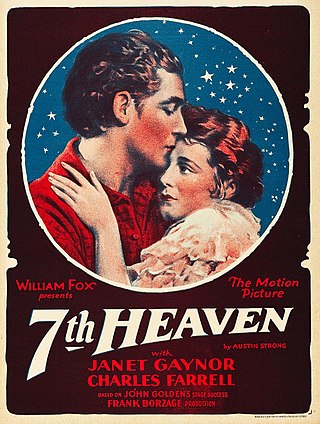
7th Heaven is a 1927 American synchronized sound romantic drama directed by Frank Borzage, and starring Janet Gaynor and Charles Farrell. While the film has no audible dialog, it was released with a synchronized musical score with sound effects using the Movietone sound system. The film is based upon the 1922 play Seventh Heaven, by Austin Strong and was adapted for the screen by Benjamin Glazer. 7th Heaven was initially released as a standard silent film in May 1927. On September 10, 1927, Fox Film Corporation re-released the film with a synchronized Movietone soundtrack with a musical score and sound effects.

Sunrise: A Song of Two Humans is a 1927 American synchronized sound romantic drama directed by German director F. W. Murnau and starring George O'Brien, Janet Gaynor, and Margaret Livingston. While the film has no audible dialog, it was released with a synchronized musical score with sound effects using the Movietone sound-on-film process. The story was adapted by Carl Mayer from the short story "The Excursion to Tilsit", from the 1917 collection with the same title by Hermann Sudermann.
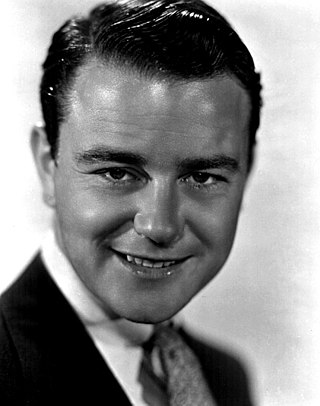
Lewis Frederick Ayres III was an American actor whose film and television career spanned 65 years. He is best known for starring as German soldier Paul Bäumer in the film All Quiet on the Western Front (1930) and for playing Dr. Kildare in nine films. He was nominated for an Academy Award for Best Actor for his performance in Johnny Belinda (1948).

Street Angel is a 1928 American synchronized sound drama film. While the film has no audible dialog, it was released with a synchronized musical score with sound effects using the sound-on-film movietone process. The film was directed by Frank Borzage, adapted by Harry H. Caldwell (titles), Katherine Hilliker (titles), Philip Klein, Marion Orth and Henry Roberts Symonds from the play Lady Cristilinda by Monckton Hoffe. As one of the early, transitional sound film releases, it did not include recorded dialogue, but used intertitles along with recorded sound effects and musical selections.

Mary Brian was an American actress who made the transition from silent films to sound films.

Margaret Lindsay was an American film actress. Her time as a Warner Bros. contract player during the 1930s was particularly productive. She was noted for her supporting work in successful films of the 1930s and 1940s such as Baby Face, Jezebel (1938) and Scarlet Street (1945) and her leading roles in lower-budgeted B movie films such as the Ellery Queen series at Columbia in the early 1940s. Critics regard her portrayal of Nathaniel Hawthorne's Hepzibah Pyncheon in the 1940 film The House of the Seven Gables as Lindsay's standout career role.
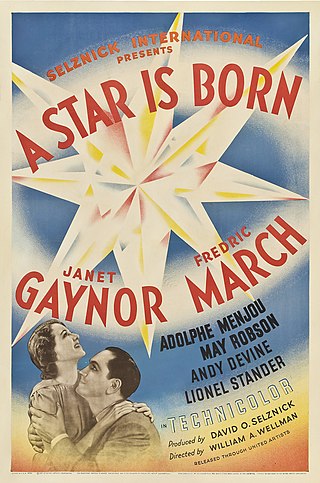
A Star Is Born is a 1937 American Technicolor drama film produced by David O. Selznick, directed by William A. Wellman from a script by Wellman, Robert Carson, Dorothy Parker, and Alan Campbell, and starring Janet Gaynor as an aspiring Hollywood actress, and Fredric March as a fading movie star who helps launch her career. The supporting cast features Adolphe Menjou, May Robson, Andy Devine, Lionel Stander, and Owen Moore.

Dorothea Sally Eilers was an American actress.

Gentleman Jim is a 1942 film directed by Raoul Walsh and starring Errol Flynn as heavyweight boxing champion James J. Corbett (1866–1933). The supporting cast includes Alexis Smith, Jack Carson, Alan Hale, William Frawley, and Ward Bond as John L. Sullivan. The movie was based upon Corbett's 1894 autobiography, The Roar of the Crowd. The role was one of Flynn's favorites.
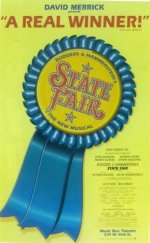
State Fair is a musical with a book by Tom Briggs and Louis Mattioli, lyrics by Oscar Hammerstein II, and music by Richard Rodgers.

Rafter Romance is an American 1933 pre-Code romantic comedy film directed by William A. Seiter and released by RKO Radio Pictures. The film, which was based on the 1932 novel of the same name by John Wells, stars Ginger Rogers, Norman Foster and George Sidney, and features Robert Benchley, Laura Hope Crews and Guinn Williams.
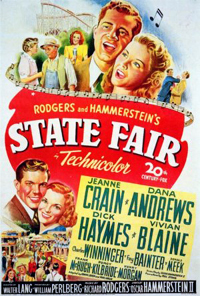
State Fair is a 1945 American Technicolor musical film directed by Walter Lang, with original music by Rodgers and Hammerstein. It is a musical adaptation of the 1933 film of the same name starring Janet Gaynor and Will Rogers. The 1933 film is an adaptation of the 1932 novel by Phil Stong. This 1945 musical film stars Jeanne Crain, Dana Andrews, Dick Haymes, Vivian Blaine, Fay Bainter, and Charles Winninger. State Fair was remade in 1962, starring Pat Boone and Ann-Margret.

State Fair is a 1962 American musical film directed by José Ferrer and starring Pat Boone, Bobby Darin, Ann-Margret, Tom Ewell, Pamela Tiffin and Alice Faye. A remake of the 1933 film State Fair and the 1945 film State Fair, it was considered to be a financially and critically unsuccessful film. Richard Rodgers, whose collaborator Oscar Hammerstein had died in 1960, wrote additional songs, both music and lyrics, for this film adaptation of the 1932 novel by Phil Stong.

Broadway Babies, aka Broadway Daddies (UK) and Ragazze d'America (Italy), is a 1929 all-talking Pre-Code black and white American musical film produced and distributed by First National Pictures, a subsidiary of Warner Brothers. The film was directed by Mervyn LeRoy and starred Alice White and Charles Delaney. This was White's first sound film with dialogue.
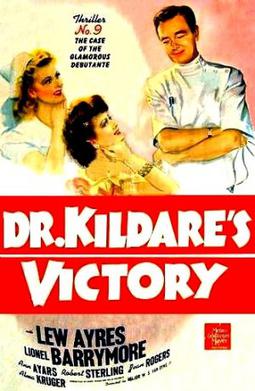
Dr. Kildare's Victory is a 1942 film directed by W. S. Van Dyke. It stars Lew Ayres and Lionel Barrymore. It is the ninth and last of the MGM Dr. Kildare movie series.
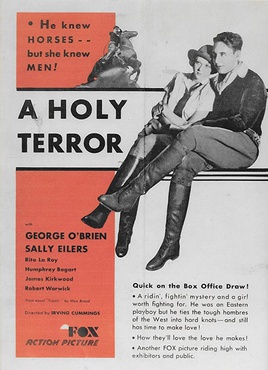
A Holy Terror is a 1931 American pre-Code Western movie starring George O'Brien, Sally Eilers, Rita La Roy, and Humphrey Bogart. The film is an adaptation by Ralph Block, Alfred A. Cohn, and Myron C. Fagan of the novel Trailin'! by Max Brand. It was directed by Irving Cummings.

State Fair is a 1932 novel by Phil Stong about an Iowa farm family's visit to the Iowa State Fair, where the family's two teenage children each fall in love, but ultimately break up with their respective new loves and return to their familiar life back on the farm. Thomas Leslie, the author of Iowa State Fair: Country Comes to Town, wrote that the novel State Fair is "a surprisingly dark coming-of-age story that took as its major plot device the effects of the 'worldly temptations' of the Iowa State Fair on a local farming family", capturing tensions between urban Des Moines and rural Iowa.

Walls of Gold is a 1933 American Pre-Code drama film directed by Kenneth MacKenna and starring Sally Eilers, Norman Foster, and Ralph Morgan.
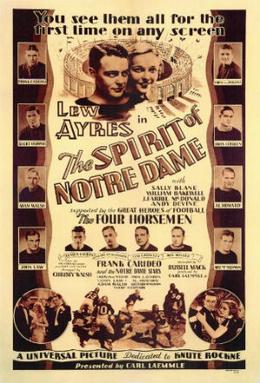
The Spirit of Notre Dame is a 1931 American drama film directed by Russell Mack, written by Walter DeLeon, Robert Keith, Richard Schayer and Dale Van Every, and starring Lew Ayres, Sally Blane, William Bakewell, Andy Devine, Harry Barris and J. Farrell MacDonald. It was released on October 13, 1931, by Universal Pictures.




















